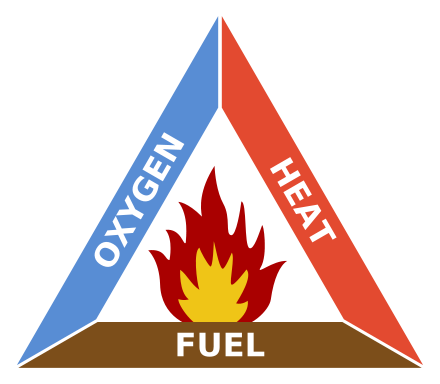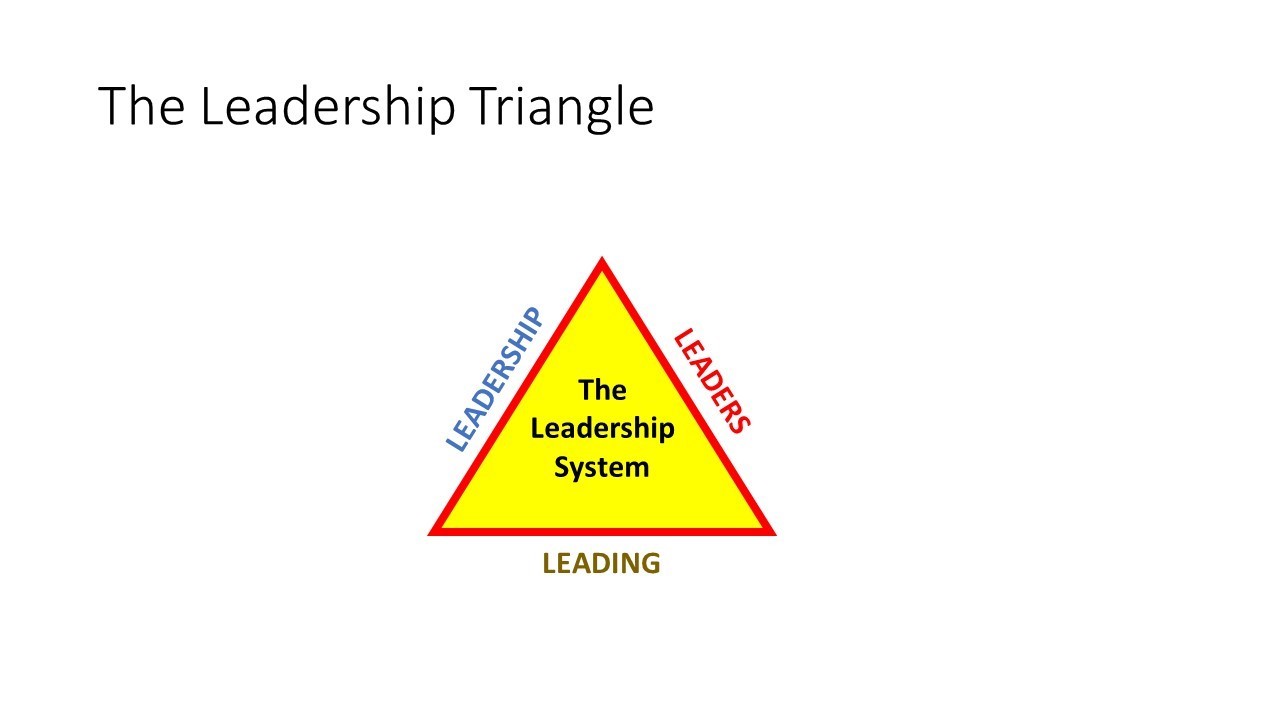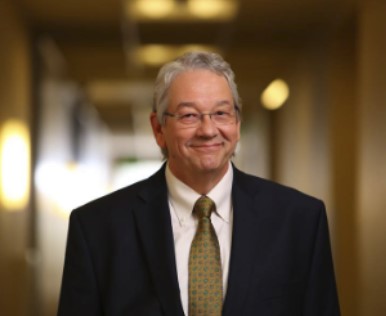The Nature of Healthy Leadership
By Dr. Mark McCaslin
A Regular Blog Series by Dr. Mark McCaslin on Leadership Practices

The nature of healthy leadership is the topic addressed in this issue. Healthy leadership has a distinctiveness surrounding its nature. It is, without exception, represented by higher-order values, concepts, and conditions concerning the nature of human potential.
In this issue, we will explore these values, concepts, and conditions deeply embedded within the landscape of leadership studies and, by default, within the human ecology itself. Healthy leadership, as a higher-order value, concept, or condition, sets itself apart from other leadership movements. It is immutable, incorruptible, and unyielding in principle while, through practice, it inspires hope, creativity, and empowerment for unmet human potential. In searching for the farther reaches of human nature Abraham Maslow (1971) stated the following tenet:
This tenet holds for leadership as well as all other potentiating arts. Healthy leadership, then, by design, aims high. It will appear to overestimate human capabilities and embrace a super-optimistic attitude toward human possibilities. Call it an elegant prejudice.
The nature of healthy leadership is integral by design. The fire triangle (right) represents leadership as an integral potentiating system. Fire requires three elements to be present: oxygen, fuel, and heat. Remove any one element, and combustion is impossible.
Leadership as an integral potentiating system, like this fire triangle model, requires its own three essential elements to exist:
- Communication
- Collaboration
- Formation of the transformative relationships necessary to advance the capacities within and around our organizations, schools, communities, and homes.

Within this integral potentiating system, leadership provides the oxygen that supports the greater relational processes necessary for healthy leadership―call it inspiration. Leading fuels the system in a way that becomes less about setting a direction and more about building the capacity of individuals or the community of practice. Such actions feed our capacities and potentials so they may creatively and mutually flourish.

Therefore, inspiration leads to innovation. Leaders, acting as a transformative, potentiating force on these capacities, create or build sustainable systems through dedicated practice. Their actions cultivate high self-efficacy in others as well as themselves. They thus become generative in their purposes: inspiration leads to innovation that drives the system toward sustainable implementation.
We create this heat when we collaboratively generate solutions for the myriad challenges, problems, and opportunities within the organizations, schools, communities, and homes we seek to serve.
Healthy leadership presents as a compound human phenomenon, an integral potentiating system concerned with being generative, innovative, and inspirational, concerning what we find true and valuable, and holding a good purpose.
What is true?
- Each person is obliged to discover and live the truth of his or her potential…
What is valuable?
- …the abundant diversity of actualizing human potentials…
What is good?
- …organizations, schools, communities, and homes that nurture the full variety and complementarity of unique human potentials.
The "Potentiator"

One foundational distinction concerning the nature of healthy leadership concerns how individuals in leader roles aid in actualizing human potential. We will call this type of leader a potentiator. Through faith in action, potentiators address the difficulty of seeing potential in another. Such conversations always seem to end at a vanishing point—that place where perception and faith meet. Here is the root of the problem:
It was the opening day of school, and my new class was sitting anxiously, waiting upon my arrival. I smiled as I walked in and quickly greeted the class. My first task was to call the roll: "Susan B. Anthony, Alex Bell, Rachel Carson, Dorothy Day, Amelia Earhart, Albert Einstein, Ben Franklin, Thomas Jefferson, Barbara Jordon, Georgia O'Keeffe, John Kennedy, Martin King Jr., Thurgood Marshall, Margaret Mead, Pablo Picasso, Eleanor Roosevelt, John Steinbeck …
The potentiator elegantly assumes that our children, students and/or associates we work with represent such a collection of potential. Furthermore, while the above historical figures have clearly impacted their world—our world—none of that had been known of them before actualizing their potential. Their potential could not be ascribed to them until after it actualized.

The nature of potentiators and potentiating is the foundational distinction held by the nature of healthy leadership. Potentiators are unique among leaders in that they hold the discipline of self-care. This discipline means they care as much about their potential as others. They are not proficient in the arts of self-laceration or self-deception. Not that they are self-serving—they have realized that, as they seek their greatest potential, they grow their capacity to potentiate others
Potentiators do not get used up and burned out; they just get better. They become curious and proficient at learning the nature of human potential. They hold a deep-seated respect for life and growth, like gardeners. They invest themselves in the possibilities of the people and do not glorify a problem or set of problems. In short, they become extraordinary learning leaders. Regarding the potentiating arts, this ultimately creates healthier leaders, teachers, and parents, who correspondently create healthier associates, students, and children.
The nature of healthy leadership—the leadership of human potential—presents an opportunity to evolve a new approach to leading embodied by a potentiating temperament. This temperament defines potentiators. They are self-aware. They hold space for acts of potentiation for themselves and others via an opening awareness, a welcoming acceptance, and abilities to sustain attention and set their intentions on fully actualizing human potential.
Potentiators are forever open to learning. As they engage in relationships, they ask, "What have you come to teach me?" They are expert listeners, not solely because of discipline and practice but also due to a deep-seated curiosity so present in a life of potential.
Potentiators suspend the vector and velocity of their daily activities and thoughts. This ability means they act on the moment's urgency—the urgency does not act on them. Their equanimity is contagious. They are mindful of their interactions as they understand the nature of human evolution—that we are all self-evolving. They understand the deep ecology of evolution: when something evolves, everything around it evolves as well.
Potentiators adapt themselves to the world and accommodate the evolving gifts of others. They maintain an elegant prejudice. Their super-optimism and vision for the full actualization of potential grant them a peacefulness that stems from a belief in the infinite potential for goodness held by others. Potentiators approach life with a "second naiveté" or hold the world with an "innocent eye," in Maslow's words. They understand, as did Socrates, that "wisdom begins with wonder."
In revealing the nature of healthy leadership, the potentiating arts, and the potentiator's temperament, we reveal a different approach to leading, teaching, parenting, and building community—an approach that holds the potential of everyone as sacred and possible. Healthy leadership is not a person. It is about people. It is not about the products of our efforts. It is about relationships. It concerns itself less about what is and more about what could be—creativity, imagination, innovation, and inspiration. Healthy leadership is about creating a responsive democracy and a learning community; it is about citizens working towards some collective purpose while championing individually held potentials. It is about discovering unity through the rich diversity of human potential.

ABOUT THE AUTHOR
Dr. Mark McCaslin
Dr. Mark McCaslin is a academic leader with a rich history of teaching, educational programming, and administration. His personal and professional interests flow around the development of philosophies, principles, and practices dedicated to the full actualization of human potential. The focus of his research has centered upon healthy organizational leadership and educational approaches that foster a more holistic approach towards the actualization of that potential. At the apex of his current teaching, writing, and research is the emergence of healthy leadership and the potentiating arts.